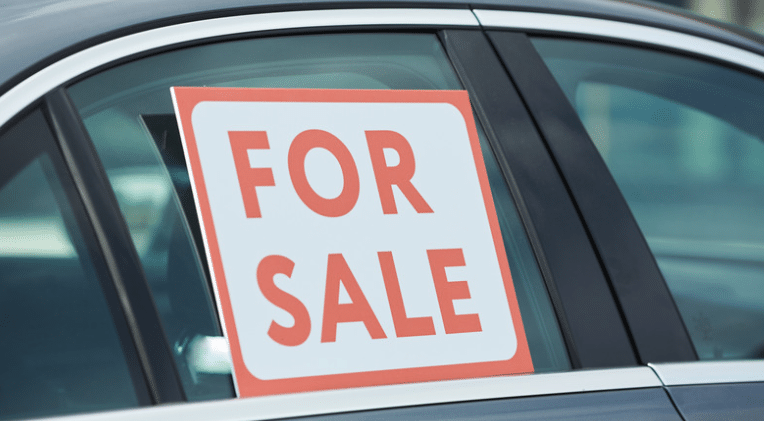
To Sell or Trade-In My Car?
You’re ready for a new car. That means you’ll have to decide what to do with your old one. Either you’ll want to sell your car or trade it at the dealer. Ultimately, the choice comes down to what matters most to you—getting top dollar for your vehicle or taking care of it quickly and easily. Here’s what you need to know.
Trading in Your Car
When you give your vehicle to a dealership in exchange for a credit toward a new car, that is a trade-in. Dealers take your used car and resell it, so that means you won’t get exactly what it’s worth. You’ll be offered a little less. Trade-ins work best with lower mileage cars. Cars over 100,000 miles cannot be re-sold by dealers as certified used cars.
Advantages
-
- Trade-ins are convenient and require minimum time and effort from you.
- Car dealers may be less picky about the car’s condition than an individual buyer.
- Dealers will handle all the necessary paperwork.
- You will have a credit to apply to a new car.
- You also might save on taxes. While some states tax buyers on the value of a new car, others tax you on the value, minus the trade-in.
Disadvantages
-
- You may not get as much money for a trade-in, as if you sold your car privately.
- If your car is old and has high mileage, the dealership may not want it or may offer a less-than satisfactory value.
Tips for Trading
-
- Don’t trade in a car for less money than you owe on it. You are still responsible for paying the lease in full.
- Having your original paperwork will make the trade-in process easier.
- Do your research and find your potential trade-in value.
- Check with multiple dealers to see if there is a difference in trade-in value.
- Don’t be afraid to walk away from the deal if you don’t get your price.
Selling Your Car
If you have the time, you can sell your car privately. You can generally get more money for a private sale, but it’s a lot more work. You will need to take photos of your vehicle, write an ad and post it, and then answer all the people who are interested. You also may need to negotiate for the price you want. Generally, selling independently works well if you have a car that’s high in demand, and if you are comfortable with the sales process.
Advantages
-
- You will probably get a better price than at the dealer.
- There are lots of online sites where you can post your car.
- If you sell your vehicle online, escrow services can help coordinate the sale while protecting both parties.
Disadvantages
-
- It takes a lot of time to sell a car. You may not be able to sell your old car before you buy your new car.
- It takes a lot of work to sell a car. You must create the ad and publicize the sale either online or locally with a sign on your car displayed in a prominent place.
- You will be responsible for any accidents that potential buyers cause in your car. That’s because insurance follows the car not the driver.
- You can put yourself in a risky situation with the exchange of funds. A bank check or direct wire might be best. You can also do the transaction in the parking lot of a police station.
- You must do the paperwork. This includes creating a bill of sale and making sure that the title is transferred correctly.
Tips for Selling
-
- Clean your car and remove bumper stickers.
- Take professional looking photos.
- Research the right asking price.
- Make any necessary repairs.
- Be honest in your ad.
- Advertise on safe sites.
- Potential buyers will want to do test drives. You will need to make sure they will not drive away with your car. Take a picture of the buyer’s driver’s license.
Beware of Car Selling Scams
- Car Sale Phishing: Scammers that pose as customers can steal your private information. In this scam, they ask for extra verification to get as much information about you as they can. They then use it to set up credit cards, access your bank accounts, or steal your identity.
- Confirmed Buyer: You may get a notification from an online site that you have a confirmed buyer. The email will request a finder’s fee before releasing the information. Usually they include a money-back guarantee, which is also fake. You end up being out the money.
- Fake Escrow: The buyer sets up a fake escrow account to hold funds until the vehicle is purchased. They will link to your bank account and steal your information and often, your money.
- PayPal Scam: The buyer will need your car quickly because of a transportation issue, and likely not haggle over price. They will say they can only pay via PayPal. They will send you an email from PayPal saying that the payment is awaiting approval to be released and ask you for a shipping fee. Once you send the payment, the buyer disappears and you’re out several thousand dollars.
- Payment Plan: The buyer will offer you a price above market value with a decent amount of interest to pay the car off over time. They’ll make the first payment and then you’ll never hear from them again.
Whether you sell or trade-in your vehicle, take precautions to do it safely. Your car is one of your greatest investments. Protect it with the right policy for added peace of mind.
This article is furnished by California Casualty, providing auto and home insurance to educators, law enforcement officers, firefighters, and nurses. Get a quote at 1.866.704.8614 or www.calcas.com.
